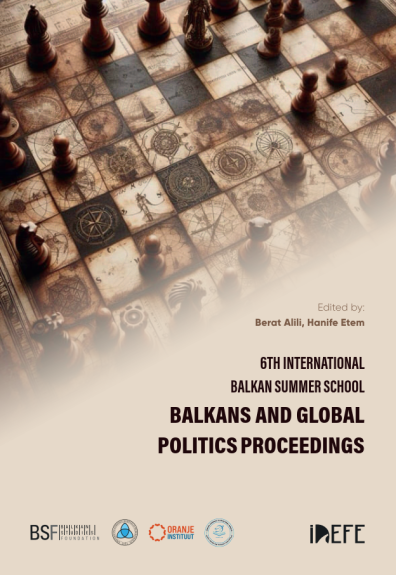Proceedings
Russian Foreign Influence in the Western Balkan: Does It Threaten Security and Stability to Regional States?
Authors
-
Harun NuhanovićInternational Relations and Diplomacy, University of Sarajevo
Synopsis
Since 2013, Russian influence in the Western Balkans has been coming to the fore. In the same year, Russia published a strategic document, “Foreign Policy Concepts,” marking the Balkan region as strategically important. Besides traditional ties with the Orthodox population in the Western Balkans, the document emphasized the region’s significance for Russia in distributing gas and oil to European countries. Since then, Russia has increased its engagement in the Western Balkans as a spoiler. Russian involvement in the region was primarily aimed at thwarting countries from EU and NATO accession, leading to threats to security as well as democracy. Russian oligarchs play an important role in undermining regional security. Russia even attempted a coup d’etat in Montenegro before its NATO accession. Furthermore, Russia equipped Serbia and the Bosnian entity Republika Srpska (RS) with weapons, shifting the balance in favor of the Serbs. Additionally, Russian personnel in the United Nations Mission in Kosovo (UNMIK) support Serbia by implementing their own agenda and colluding with the West in the region.
In the economic sphere, Russian oligarchs purchased oil refineries, making the region dependent on Russian gas and oil. The staunchest allies of Putin received favorable oil and gas prices, raising questions about the background of these favorable terms. Recently, Russian media and NGOs have penetrated the Western Balkans. Russian presence was entrenched by establishing affiliations with the Cossack Army and the Night Wolves in the region. They organize events and gatherings praising Putin and his policies. Furthermore, Night Wolves attracted attention in 2018 when they conducted a tour of the Western Balkans, visiting important Orthodox sites.
In the media realm, the Russian state news agency Sputnik opened its office in Serbia, disseminating news across the region. Pro-Russian media in the area share news that contributes to a sense of insecurity and negatively portrays Euro-Atlantic democratic reforms.
Copyright
Copyright (c) 2025 Idefe Publications
License

This work is licensed under a Creative Commons Attribution-NonCommercial 4.0 International License.
Russian Foreign Influence in the Western Balkan: Does It Threaten Security and Stability to Regional States?
Downloads
Publication Information
-
Publication TypeChapter
-
Volume
-
Pages71-89
-
PublishedJune 7, 2025
-
Series
-
Series PositionProceedings 05
Alili, B., & Ethem, H. . (Eds.). (2025). Russian Foreign Influence in the Western Balkan: Does It Threaten Security and Stability to Regional States?. In 6th International Balkan Summer School Balkans and Global Politics Proceedings: Vol. Proceedings 05 (pp. 71-89). Idefe Publications. https://doi.org/10.5331/
